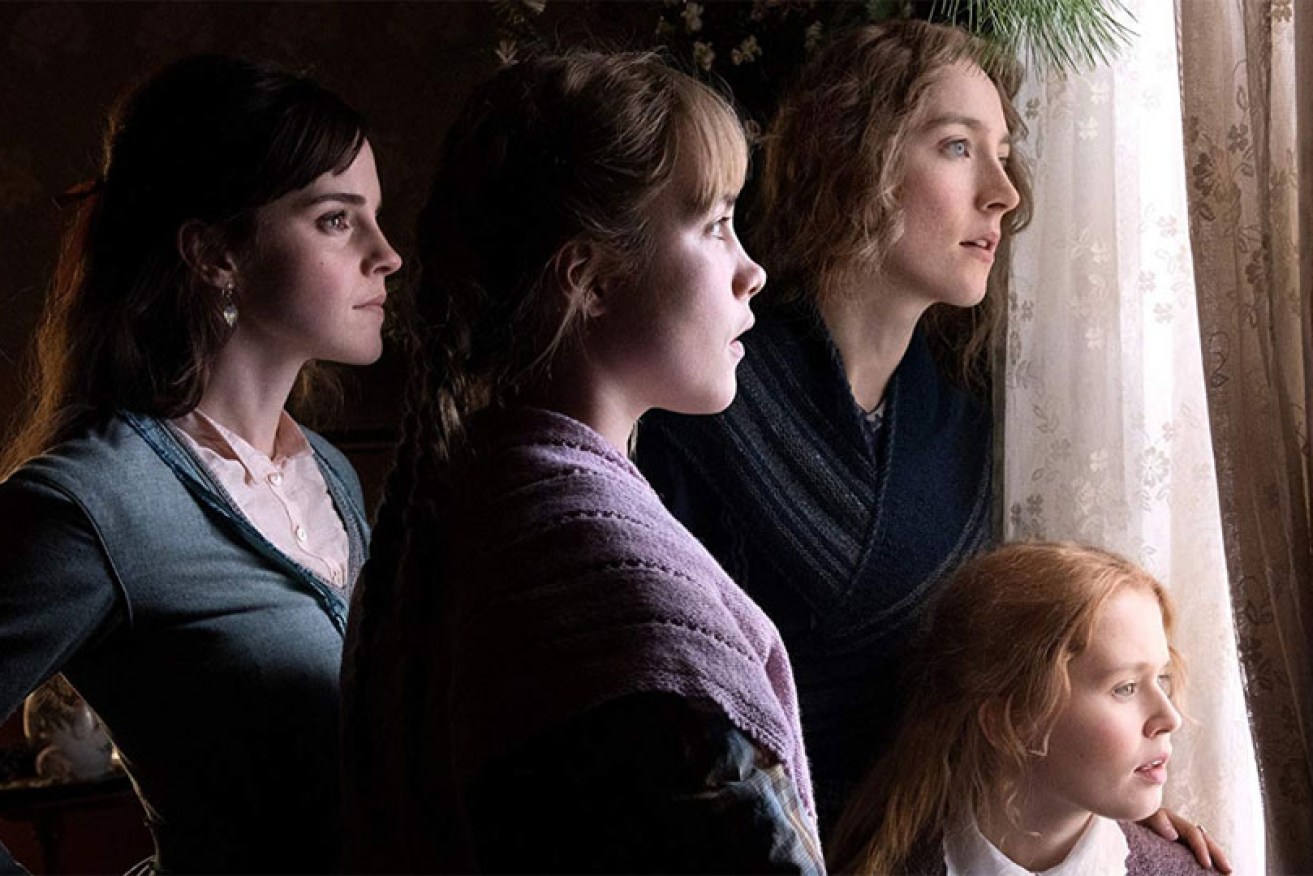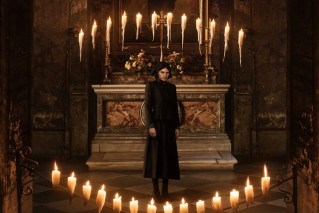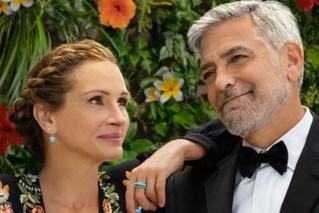Little Women is glorious but for one dud note


Emma Watson, Florence Pugh, Saoirse Ronan and Eliza Scanlen in Little Women. Photo: Regency Enterprises
Director Greta Gerwig’s retelling of Little Women is just the palette cleanser we needed after Tom Hooper’s extraordinary Cats – an energetic, fierce, wild re-imagining of an enduring classic.
Faith in cinema: restored.
It’s no mean feat to make a 150-year-old novel feel current, alive and utterly relatable to a modern audience. But it seems Gerwig is just the person for the job. In 2017 she became the fifth female to be nominated for an Academy Award for best director (for Lady Bird) and it’s remarkable to consider this is just her second feature film as director.
Gerwig has a unique ability to show women crackling with frustration and passion on the big screen.
And that’s just what a modern retelling of Little Women needs. The relationship between the women in the March family is beautifully portrayed here. The fierce love and the simmering jealousy is palpable.
At the core of the story is Jo March, one of literature’s great feminists. The tale is semi-autobiographical, and Gerwig has an enormous empathy for author Louisa May Alcott’s discomfort with how uninspiring women’s lives could look in 1868 Massachusetts.
The performance the director draws out of Saoirse Ronan as Jo, a woman who is not happy to simply become somebody’s wife and essentially eschew her identity, is extraordinary. She vibrates with intensity.
Gerwig is very faithful to the original story, but has made some slight adjustments. She has tinkered with the timeline, shunning the chronological style of the novel and instead beginning her version with adult Jo who has moved to the city and is trying to sell her writing to sniffy old men, who attempt to dictate the female narrative.
It’s a move that works, as it gets right to the heart of the film’s theme.
Perhaps Gerwig’s greatest tweak is bringing the character of Amy to the fore. She has often been portrayed as a mere brat, a jealous sister with a penchant for arson and a thorn in Jo’s storyline. But casting up-and-comer Florence Pugh as Amy and giving her storyline extended screen time is a stroke of genius.

Timothee Chalamet and Florence Pugh are fabulous. Photo: Regency Enterprises
Pugh is so strong and charismatic she couldn’t blend in if she tried. She and Ronan bounce off one another with the perfect balance of love and hate, and that particular sibling relationship is one of the most magnetic things about this retelling.
Which brings me to the film’s only dud note.
I duck as a I say this but … Emma Watson is not a good actress. Sure, she could hold up a big head of hair as a kid in the Harry Potter movies, but she’s human Valium on screen.
To be fair, Meg isn’t the most exciting character. She’s dutiful and predictable, but goodness, Emma Watson really knocks the joy out of any scene she appears in. Even when her character is dancing a jolly jig you have the sudden urge to take a nap.

Emma Watson prays to be better at acting in Little Women. Photo: Regency Enterprises
But there is plenty to balance out Watson. Meryl Streep is predictably marvelous as acidic Aunt March, Laura Dern is wonderful as Marmee (side note: this is absolutely the era of Laura Dern, please see Marriage Story) and Timothee Chalamet is the perfect Laurie, a lonely orphan lens through which to view the warm bond of the March family.
While the young March girls are struggling to find enough to eat, the film is, in contrast, a visual feast. In the happy childhood home, despite the trying financial circumstances, the lighting and color palette is all warm glowing autumnal tones.
Through the tougher times of the film, the tones move to greys and icy blues. It’s done subtly but it’s enormously effective. As Beth gets sicker you subconsciously wish someone would pull the blankets up to your chin.
There are also some glorious sweeping scenes that capture the rugged beauty of New England’s beaches. It’s clear the visuals of every scene, from the costuming to the ramshackle backdrops created for the March girl’s homemade theatre pieces, have been painstakingly considered.
The only other minor criticism of the film is the score, which is occasional a bit heavy-handed with emotion. As my friend put it, “It’s like you’re being sent a telegram telling you how to feel”. And in a film that is all about making your own choices about how you think and feel, that jars a bit.
But these are just very minor gripes. Otherwise, this adaptation is a triumph. Hat tip to Greta Gerwig for knowing just how to repackage this feminist manifesto for a new generation of young, fierce women.








